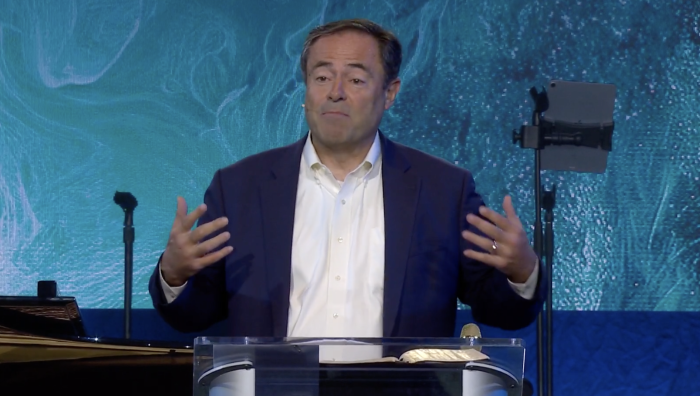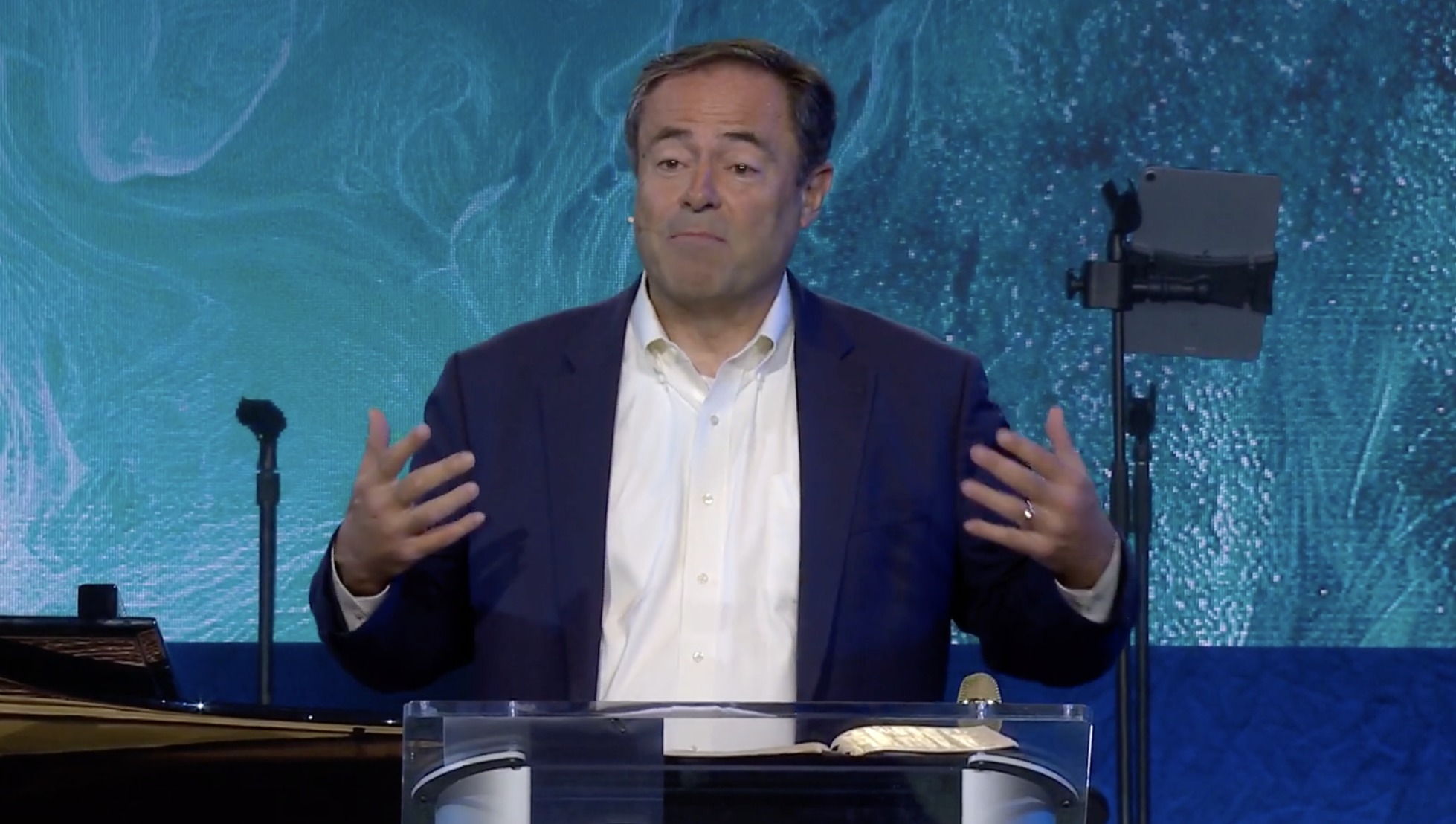
Mark Dever, senior pastor of Capitol Hill Baptist Church in Washington, D.C., highlighted the significance of the Magnificat and how its context can serve as an instructive model for today’s churches in a message delivered at the Getty’s Sing! Conference in Nashville, Tennessee.
In a Tuesday sermon, Dever unpacked the meaning of Mary’s song of praise in Luke 1:39-56 and highlighted its relevance to modern worship practices and the sovereignty of God.
The setting — an older, barren Elizabeth meeting the young, virgin Mary — serves as a contrast to the world’s typical power structures and God’s use of the unlikely to fulfill His divine plan.
“God does great things through weak instruments, not so much to tell us about the instruments, but to tell us about Himself,” Dever said. “The weak and the powerless themselves sin and can be enemies of God, just like the strong and the powerful. But God uses the weak to show that His glory is independent of human strength.”
The Nine Marks of a Healthy Church author addressed the communal nature of worship, drawing attention to the significance of Mary’s song being shared with Elizabeth.
“Mary praised God to Elizabeth,” he emphasized. “We can certainly have wonderful times with the Lord alone. But it’s no accident that this beautiful hymn was said from one grateful soul to another who would understand. There’s something in the very corporate nature of gatherings that brings out the reality and the significance of our words about God. Even as we want to avoid being the hypocrite, appearing to be something that we’re not, we also want to avoid being the hermit, never appearing to others at all, and that’s how some people try to live their Christian lives as if being a Christian is merely a matter of private devotion.”
He urged churches to make their worship more intentional and participatory, advocating for introducing hymns with historical or theological context to deepen the congregation’s understanding.
“Sometimes sharing that historical setting will cause the meaning to pop,” Dever said. “Sharing the setting for the composition can make the meaning of the song stand out more clearly.”
Dever stressed the role of music in congregational life, saying volume and enthusiasm of congregational singing are crucial components of worship.
Offering advice for worship leaders, he suggested choosing singable hymns, turning down ensemble microphones to highlight congregational voices and ensuring that the sound system supports the congregation’s participation.
“Once the congregation hears each other singing, they are going to be so much more encouraged than they are by the wall of sound that comes from the front, whether it’s an electric guitar or a pipe organ. Have accompanists know how to play in such a way that frames and highlights and encourages the congregation singing and not their own playing,” he advised.
“Again and again in Scripture, loudness, greatness of volume, is associated with the greatness of that which is said or exclaimed or proclaimed or sung,” he said.
“You notice in the Gospel that even often when the demons are saying the truth about Jesus — it must have hurt them to do that, but there they are — they’re doing it loudly. … It’s not being muttered. They’re doing it as a public witness. For that matter, Jesus Himself, when His own physical life is nearly exhausted with His last incarnate breath, all the gospels record not merely that he spoke, but that he cried out loudly, ‘Father, into Thy hands. I commit my spirit.’ Some things should be proclaimed publicly, and God’s praises are among them.”
Dever urged the Church to embrace wonder and humility in worship, noting the rich theology embedded in hymns like “Before the Throne of God Above,” which encapsulate complex biblical truths in concise, poetic form.
“Good songs teach us the Bible,” Dever said. “We have thick theological truths comprised into tight poetic forms that light up our understandings and stick in our memories. … There are some lines in our hymns that so illumine the pathos of God’s love for us that it makes us weep in wonder, as we then want to leap in joy.”
Reflecting on Mary’s humility in the Magnificat, the pastor reminded the audience that worship is not about drawing attention to oneself but pointing to God.
During his sermon, Dever also invited those in the audience who were not yet Christians.
“Christianity is only for sinners,” Dever said. “We have nothing to offer to non-sinners. So if you’re here as a nonsinner, thank you so much for coming. You can leave whenever. We really have nothing for you. But among sinners, Christianity is only for a certain set of sinners. It’s only for repenting sinners, it holds out hope only for those who will repent. In Christ, our hopes don’t end in this life. Jesus Christ exceeds them all.”
The Sing! 2024 conference was held from Tuesday to Thursday in Nashville, Tennessee. This year’s conference theme was “The Songs of the Bible” and featured speakers and artists, including Keith and Kristyn Getty, Alistair Begg, Andrew Peterson, Mark Dever, Michael W. Smith and more.








